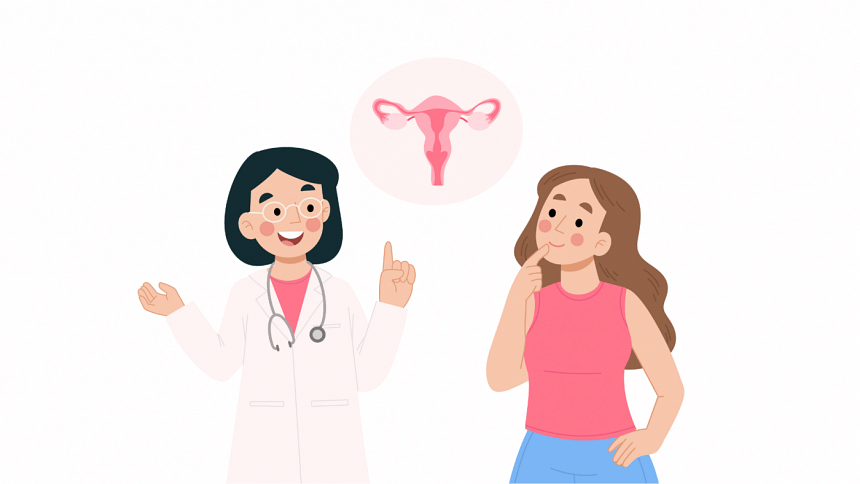A guide to your first visit to the gynaecologist

In the bustling chaos of 2020, amidst the pandemic's confinements, I found myself in the clutches of a puzzling predicament that sent shockwaves through my entire being - my period had gone inexplicably missing. As a woman with a trusty regular menstrual cycle, this was an unsettling surprise. Then, as if mocking my distress, when my period finally decided to make a reappearance, it chose to do so with a vengeance. A 28-day-long period – a peculiar form of irony that felt like a cruel taunt from the universe itself.
Navigating uncharted territory, I braved my first gynaecologist visit at 21, determined to escape the grips of self-diagnosis. Looking back, a few essential tips could have calmed my nerves and stifled the uncertainties. Today, I'll be sharing those tips with you.
Track your cycle
Menstrual cycle tracking is simple to handle using calendars or specialised apps. By using these tools, you can gain insights into your ovulation days and correctly count the time between each cycle, which can range from 28 to 35 or even 40 days for various people. If it's anything different than this scenario you must speak to your doctor about it.
Trust your instincts
Nobody knows your body better than you do. If you see anything out of the ordinary, keep a close eye on it. It is critical to get counsel from your gynaecologist if you are experiencing symptoms like severe cramping out of nowhere, unusually large clots, or intermenstrual bleeding.
Tell everything to your gynaecologist
When presented with the potential of discussing private things with their healthcare professionals, many women experience anxiety, as society standards have long promoted silence on such subjects. But remember, your doctor is here to help you. They have heard it all and nothing that you say will faze them. The doctor will treat the situation according to the diagnosis. If they are presented with fragmented information, you might not get the help you require. Tell them the details, your situations, and concerns.
Getting an ultrasound
Usually, doctors suggest an ultrasound whenever you're facing cycle irregularities. Ultrasound imaging is used to look for abnormalities, blockages, and other conditions that could be causing your menstrual irregularity. If an ultrasound exam reveals any problems, it can help determine where to focus for additional testing, eventual diagnosis, and management. You must have a full bladder when you're getting an ultrasound. To fasten the process, you can get an ultrasound before you visit the gynaecologist, it will save you some time.
Issues with pills
The most common remedy given by gynaecologists is pills to regulate your hormones. However, sometimes the side effects of the pills can be so dire that they might hamper your daily activities. Communicate with your doctor about your experiences with hormonal medication. They might suggest you a different medication to accommodate your needs.
Do not lose sleep over it
In most cases, a missed period once in a while is no cause for concern. Drastic lifestyle changes, stress, gaining or losing significant weight, or vigorous exercising can cause your cycle to be irregular.
Just like visiting your doctor for a routine checkup, visiting your gynaecologist once in a while is just being safe. For me, it was to ease my mind and to stop myself from frantically googling what was wrong with me.
Azra Humayra is majoring in Journalism and enjoys French New Wave films. Find her at: [email protected]

 For all latest news, follow The Daily Star's Google News channel.
For all latest news, follow The Daily Star's Google News channel. 









Comments